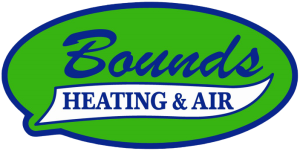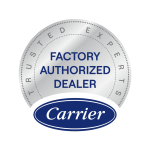Here’s What a Spring A/C Tuneup Will Involve
 Gainesville summers are long and hot, and your air conditioner needs all the help it can get to make it through the cooling season efficiently and without operating problems. The best way to ensure top performance from your air conditioner all summer long is to schedule preventive maintenance this spring.
Gainesville summers are long and hot, and your air conditioner needs all the help it can get to make it through the cooling season efficiently and without operating problems. The best way to ensure top performance from your air conditioner all summer long is to schedule preventive maintenance this spring.
Benefits of Annual Preventive Maintenance
A spring A/C tuneup is a wise investment for several reasons. Not only does it increase system efficiency and lead to lower utility bills and carbon footprints, but it also extends the operating life of the air conditioner. Regular maintenance also helps prevent common problems that require expensive repairs, or worse, system replacement.
Spring A/C Tuneup Tasks
It’s essential to hire a reputable contractor that employs skilled technicians who undergo regular training to keep up with changing techniques and technologies. Your technician will perform a comprehensive inspection and tuneup of your system, which will include these tasks:
- Inspect the wiring and terminals for corrosion and check for loose connections.
- Check the pressures, temperatures, and airflow against system specifications.
- Inspect and clean the indoor and outdoor coils for optimum heat transfer.
- Flush the condensate drain to prevent clogs during periods of high humidity.
- Clean and inspect the blower assembly and the motor.
- Check the thermostat for accuracy and calibrate it if needed.
- Lubricate the motor, fan and other moving parts to prevent friction.
- Test the electric control to ensure the system cycles properly.
- Measure the refrigerant level and check for leaks if it’s low.
- Inspect ductwork for obstructions and air leaks.
Maintaining Your System Between Tuneups
Once your system has been tuned up, here are three essential monthly tasks that will help ensure continued efficiency:
- Inspect the air filter and replace it when you can’t see the filter through the dust.
- Hose down the outdoor unit to remove debris that can interfere with airflow and heat transfer.
- Vacuum around the indoor unit to prevent condensate drain clogs.
To schedule your spring A/C tune-up with one of our skilled technicians, please feel free to contact us in the Gainesville area at Bounds Heating & Air.


 There are a number of ways you can
There are a number of ways you can  same steps you take now to reduce heat loss will also work to prevent heat gain once air conditioning season begins.
same steps you take now to reduce heat loss will also work to prevent heat gain once air conditioning season begins.